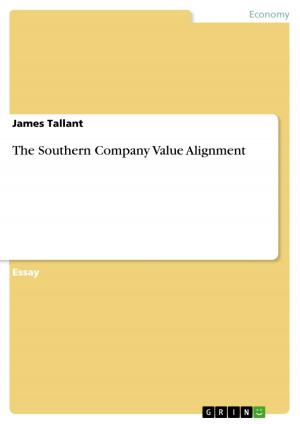| Author: | Oliver Christl | ISBN: | 9783640418008 |
| Publisher: | GRIN Publishing | Publication: | September 3, 2009 |
| Imprint: | GRIN Publishing | Language: | English |
| Author: | Oliver Christl |
| ISBN: | 9783640418008 |
| Publisher: | GRIN Publishing |
| Publication: | September 3, 2009 |
| Imprint: | GRIN Publishing |
| Language: | English |
Essay from the year 2006 in the subject History Europe - Other Countries - European Postwar Period, grade: 1,7, University of Birmingham, language: English, abstract: On 15 October 1964 after 13 years in opposition, Labour was elected the leading party in Britain once again. Although the majority of seats was one of the smallest in British history, the first years of Harold Wilson's premiership showed some promising political developments and relative economic progress. However, hopes for a change in the nation's economical position were soon disappointed as the government appeared unable to expand its early success and rather deteriorated the economical position of Britain compared to its rivals. This essay examines the reasons for both the successes and the failures of Harold Wilson's policies. It therefore concentrates on the Labour government's economic and foreign policies and their development during Wilson's premiership. II. Successes of Harold Wilson's policies At the elections in 1964 the electorate, albeit only marginally, voted in favour of a Labour campaign promising 'A New Britain' in which the 'decline of the 13 wasted years' of Conservative policies could be reversed by concentrating on scientific and technological progress and modernising the machinery of the government and the economy. But more than the party's manifesto, its charismatic political leader secured the election victory for Labour. Coming from a lower middle class family and having already presented himself as a most successful leader of the opposition, the elected candidate Harold Wilson, at 48 the youngest Prime Minister of the century so far, raised high expectations. Indeed, Wilson's government had a tremendous start and impressed the country with its dynamism and wealth of ideas. With economic issues being the most urgent problem facing Britain Labour set up a National Economic Plan that, in the words of James Callaghan, Wilson's Chancellor of the Exchequer, should function as 'a framework for industrial development and production, whose object would be to increase exports and replace imports.' Therefore, 'the whole plan would be constructed on the potential capacity of each separate industry for production and export', with the result that '[e]very industry would be able to see where it fitted into the national economy and would be able to make long-term plans more safely than hitherto in the expectation of steady industrial growth throughout the rest of the economy.' To draw up the National Plan the Department of Economic Affairs (DEA) was established, which should counter Treasury power. In creating the DEA
Essay from the year 2006 in the subject History Europe - Other Countries - European Postwar Period, grade: 1,7, University of Birmingham, language: English, abstract: On 15 October 1964 after 13 years in opposition, Labour was elected the leading party in Britain once again. Although the majority of seats was one of the smallest in British history, the first years of Harold Wilson's premiership showed some promising political developments and relative economic progress. However, hopes for a change in the nation's economical position were soon disappointed as the government appeared unable to expand its early success and rather deteriorated the economical position of Britain compared to its rivals. This essay examines the reasons for both the successes and the failures of Harold Wilson's policies. It therefore concentrates on the Labour government's economic and foreign policies and their development during Wilson's premiership. II. Successes of Harold Wilson's policies At the elections in 1964 the electorate, albeit only marginally, voted in favour of a Labour campaign promising 'A New Britain' in which the 'decline of the 13 wasted years' of Conservative policies could be reversed by concentrating on scientific and technological progress and modernising the machinery of the government and the economy. But more than the party's manifesto, its charismatic political leader secured the election victory for Labour. Coming from a lower middle class family and having already presented himself as a most successful leader of the opposition, the elected candidate Harold Wilson, at 48 the youngest Prime Minister of the century so far, raised high expectations. Indeed, Wilson's government had a tremendous start and impressed the country with its dynamism and wealth of ideas. With economic issues being the most urgent problem facing Britain Labour set up a National Economic Plan that, in the words of James Callaghan, Wilson's Chancellor of the Exchequer, should function as 'a framework for industrial development and production, whose object would be to increase exports and replace imports.' Therefore, 'the whole plan would be constructed on the potential capacity of each separate industry for production and export', with the result that '[e]very industry would be able to see where it fitted into the national economy and would be able to make long-term plans more safely than hitherto in the expectation of steady industrial growth throughout the rest of the economy.' To draw up the National Plan the Department of Economic Affairs (DEA) was established, which should counter Treasury power. In creating the DEA















